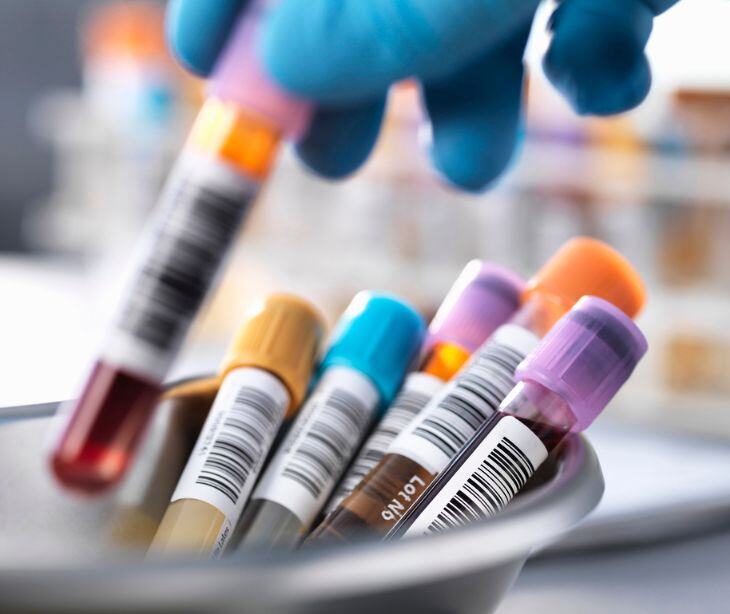4 min read
Does HIPAA apply to clinical research associates (CRAs)?
Tshedimoso Makhene
June 24, 2024

According to Vision Research Reports, “the global clinical trials market size was estimated at around USD 57.39 billion in 2023 and it is projected to hit around USD 92.77 billion by 2033, growing at a CAGR of 4.92% from 2024 to 2033.” This rise can be attributable to “advancements in medical research, increasing prevalence of diseases, and a growing emphasis on personalized medicine. This comprehensive overview delves into the key facets of the clinical trials market, shedding light on its current landscape and future prospects.”
The role of a clinical research associate (CRA) at a clinical research site involves monitoring the trial to ensure it is conducted according to the protocol, regulatory requirements, and Good Clinical Practice (GCP) guidelines. As part of their responsibility in managing and supervising clinical trials, CRAs are tasked with collecting and dealing with protected health information (PHI). However, due to the sensitivity of this data, they must adhere to HIPAA regulations and other applicable regulations for protecting patient confidentiality and maintaining secure handling of PHI.
What is a CRA?
A CRA is a professional who monitors and manages clinical trials on behalf of pharmaceutical companies, contract research organizations (CROs), or academic institutions. Their primary role is to ensure that clinical trials are conducted according to regulatory requirements, protocol specifications, and Good Clinical Practice (GCP) guidelines.
Do CRAs handle PHI?
CRAs can collect, access, or handle PHI as part of their role in clinical research. Here’s how and why this occurs:
- Study monitoring: CRAs are responsible for monitoring clinical trials and ensuring they comply with regulatory requirements and study protocols. This task frequently entails reviewing patient records that contain PHI to validate the accuracy and completeness of the data.
- Data collection and verification: During site visits, CRAs may collect or verify data from medical records, case report forms, and other sources that contain PHI to ensure that the data reported for the clinical trial is accurate and matches the source documentation.
- Adverse event reporting: CRAs may need to collect detailed information about adverse events experienced by study participants. This information often includes PHI to adequately document and report these events to regulatory authorities and sponsors.
- Regulatory compliance: CRAs must ensure that the clinical trial complies with GCP guidelines and other regulatory requirements, which often involve reviewing PHI to confirm that informed consent was obtained and that study procedures are being followed correctly.
- Communication with investigators: CRAs act as liaisons between the study sponsor and the investigative site. This can involve discussing specific patient cases and data, which may include PHI, to resolve queries and ensure proper trial conduct.
Why must CRAs comply with HIPAA?
CRAs must comply with HIPAA for several key reasons:
- Legal requirement: HIPAA is a federal law, and compliance is mandatory for entities and individuals who handle PHI. Failure to comply can result in significant legal consequences, including fines ranging from $137 to $2,067,813 and other penalties such as jail time of up to ten years.
- Protection of patient privacy: HIPAA aims to protect patients' privacy and the confidentiality of their health information. CRAs often deal with sensitive health data as part of clinical research. Ensuring that this information is handled securely and confidentially is crucial to maintaining patient trust and ethical standards in research.
- Data security: HIPAA provides a framework for safeguarding electronic PHI (ePHI) through its Security Rule. CRAs must implement appropriate administrative, physical, and technical safeguards to protect ePHI from unauthorized access, breaches, and other security threats.
- Ethical standards: Compliance with HIPAA aligns with ethical standards in clinical research, ensuring that patient rights are respected and that personal health information is not misused or disclosed inappropriately.
- Institutional requirements: Many institutions, such as hospitals, universities, and research organizations, require compliance with HIPAA as part of their operational policies. CRAs working with these institutions must adhere to HIPAA regulations to meet institutional requirements and maintain collaborations.
- Regulatory oversight: Regulatory bodies, such as the Office for Civil Rights (OCR) within the Department of Health and Human Services (HHS), enforce HIPAA compliance. CRAs must comply with HIPAA to avoid regulatory scrutiny and potential audits or investigations.
- Professional responsibility: As professionals involved in clinical research, CRAs have a responsibility to protect participant data and ensure ethical conduct in research practices. HIPAA compliance is a fundamental aspect of fulfilling this professional responsibility.
How can CRA ensure HIPAA compliance?
CRAs can ensure HIPAA compliance by implementing the following practices:
- Conduct a risk assessment: A risk assessment is essential for understanding PHI handling processes within a research site, identifying potential risks and vulnerabilities, and determining necessary measures to mitigate the risks, and ensuring PHI security.
- Patient consent: HIPAA compliance requires obtaining patient consent for all uses and disclosures of their PHI, respecting their rights, and ensuring explicit approval for their information use.
- Training and awareness: Undergoing thorough training on HIPAA regulations to understand the legal requirements and best practices for handling PHI.
- Develop policies and procedures: HIPAA compliance requires comprehensive policies and procedures covering all aspects of PHI management, including storage and transmission. Regular employee training on these policies ensures an understanding of responsibilities and proper protocols.
- Secure communication: Secure communication methods, such as encrypted emails and messaging apps, and HIPAA-compliant teletherapy sessions protect PHI and ensure compliance with security standards.
- Data security: Implementing administrative, physical, and technical safeguards to protect PHI, such as secure storage, controlled access, and encryption of electronic data.
- Minimum Necessary Standard: Ensuring that only the minimum necessary PHI is accessed or disclosed for research purposes and that appropriate patient consent and authorizations are obtained and documented.
- Maintain records: Maintaining comprehensive records of compliance efforts, including risk assessments, training sessions, and policy updates, ensures legal protection and ongoing HIPAA compliance. CRAs must also ensure secure storage of patient records to prevent unauthorized access.
- Business associate agreement: Business associate agreements (BAAs) are crucial for third parties handling PHI, legally binding them to comply with HIPAA standards and, extending compliance beyond the research site to external partners or services.
- Incidence response plan: An incident response plan puts measures in place to address PHI breaches, ensuring containment, notification, and mitigation strategies to minimize damage and maintain trust, ensuring a swift and organized response.
See also:
FAQs
Do CRAs need to sign business associate agreements (BAAs) under HIPAA?
CRAs who handle PHI on behalf of covered entities (e.g., hospitals and clinics) are considered business associates and must sign BAAs. BAAs outline responsibilities for safeguarding PHI and complying with HIPAA requirements.
Learn more: What does it mean to be a business associate?
How does HIPAA compliance impact international clinical trials involving CRAs?
CRAs involved in international trials must navigate varying data protection laws and regulations. They should ensure that any transfer of PHI complies with HIPAA standards and local data privacy laws, such as the GDPR in Europe.
What resources are available to help CRAs understand and maintain HIPAA compliance?
CRAs can access training programs, guidance documents from the U.S. Department of Health and Human Services (HHS), industry best practices, and consult with legal and compliance experts to stay informed about HIPAA requirements and updates.
Subscribe to Paubox Weekly
Every Friday we'll bring you the most important news from Paubox. Our aim is to make you smarter, faster.



